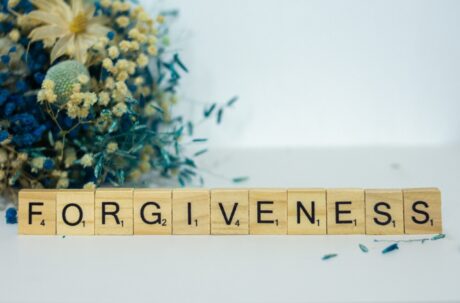
Forgiveness is a complex and multi-faceted concept that can be difficult for many people. It’s not a “one and done” act but instead, a practice you choose to do.
It also doesn’t make sense to the logical, rational mind.
Think about it, someone does something hateful/harmful/hurtful and forgiveness says; “Yes, and forgive anyway.”
So why is forgiveness so hard?
Here are a few reasons:
- Emotional pain: Forgiving someone who has hurt us (ex; abuse, betrayal, lying, etc.) can feel like we are letting them off the hook and ignoring the pain they caused us. This can make it difficult to forgive, especially if the hurt was deep and long-lasting.
- Sense of justice: Forgiving someone can feel like we are giving up our right to justice. It can be difficult to forgive when we feel like the person who hurt us needs to be held accountable for their actions.
- Trust: When someone we trusted betrays us, it can be hard to forgive them and rebuild that trust. Forgiving can feel like we are giving up control over the situation and trusting them again, even though they have already shown that they cannot be trusted.
- Bitterness and resentment: Holding onto bitterness and resentment can become a habit and make it difficult to forgive. These negative emotions can become a part of our identity and letting go of them can be challenging.
- Fear: Forgiving someone can bring up fear of being hurt again. This can make it difficult to forgive and move on from past hurts.
Forgiveness is a personal choice and it takes time, effort and often, support from others.
With all of those reasons why forgiveness can be hard, why is it still in your best interest?
Forgiveness releases the power the pain has over you. That pain shows up in the form of resentment, bitterness, anger, rage, sadness and so much more. These are also emotions that trigger the stress response leading to symptoms, illness, conditions and disease.
So imagine someone said or did something hurtful which impacts us on one level. Look at how much power we continue to give that experience when we hold onto it over time. Of course it needs to be fully processed so you can make sense and then meaning out of it. After that, it’s only poisoning the body and mind; impacting how you think, feel and move forward.
Forgiveness can lead to personal growth, improved relationships, and a greater sense of peace and well-being. If that’s not enough of a reason, forgiveness is good for your physical health too.
While we can’t control what happens to us, we control what we do with it. That’s the factor that makes all the difference in a life of suffering, or a life well lived.
Dr. Debi
Founder and CEO, The PBT (Post Betrayal Transformation) Institute
